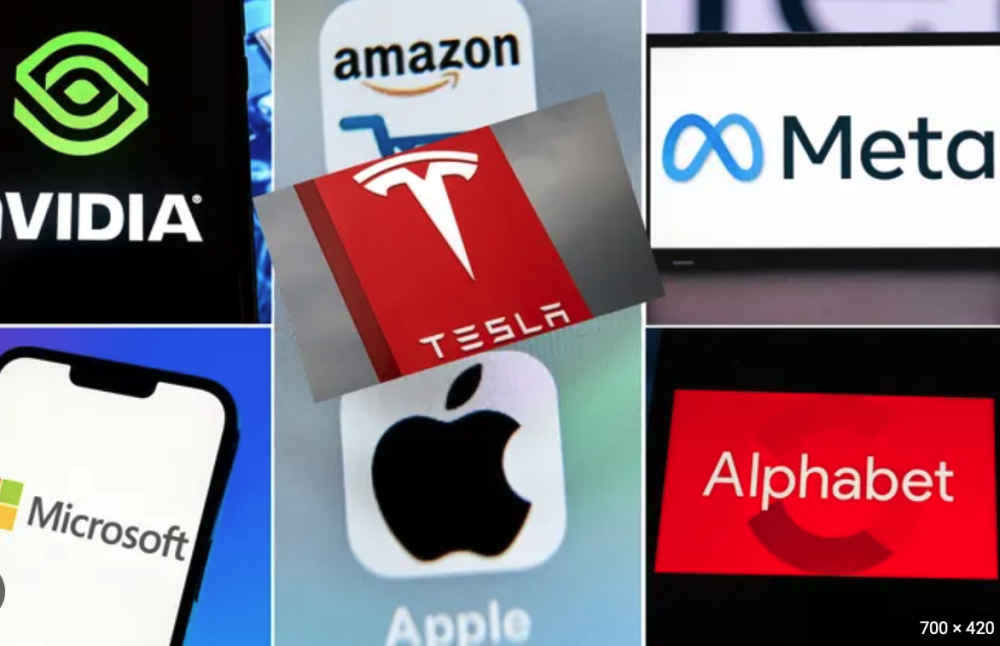UK newspaper The Guardian has shed light on the transformations that occurred in the 2023 global stock markets. The year marked the end of the five big US tech stocks' dominance Facebook (now Meta), Amazon, Apple, Netflix and Google (now Alphabet). Instead, say hello to what is variously called the Super Seven or the Magnificent Seven four of the above (the dropout being Netflix) plus Microsoft, Tesla, and the chip-maker Nvidia.
The Guardian quoted the head of strategic research at the fund manager Schroders Duncan Lamont as saying that the chart presented by MSCI All Country World Index (ACWI) demonstrates how, even if you invest via one of the broadest and most widely used "global" stock market indices, you will end up with a portfolio that is very American and very skewed towards US tech.
The MSCI index is widely used as a benchmark to track the performance of stocks from both developed and emerging markets. It covers approximately 85 percent of "the global investable equity opportunity", as the compilers put it, by measuring almost 3,000 large and mid-sized companies in 23 developed markets and 24 emerging ones.
The seven are now so big that they account for 17.2 percent of the market, while the combined representatives of Japan, the UK, China, France, and Canada contribute 17.3 percent. Seven US companies equals five countries. "This is far from diversified exposure," says Lamont. Apple alone, with a market value of 3 trillion USD, is bigger than the entire UK stock market, the paper said.
The numbers have become so astonishing. Up to last week, the group of seven has risen in value by 74 percent in 2023. The rest of the worlds equities, within the same ACWI index, have managed 12 percent. If your portfolio did not include the Magnificent Seven in 2023, it was hard to keep up, the paper noted.
This is certainly unprecedented. Thanks to the whoosh from the seven during 2023, US stocks now account for 63 percent of the supposedly global ACWI. Even in the go-go days of the Japanese economic miracle, the country accounted for only 44 percent of the same index, the paper added.
"The US has far exceeded the level of concentration of Japan in the 1980s, which everyone thought was extreme at the time," said Lamont, The Guardian reported.
Yet it would be hard to argue that the rise of the seven has been fuelled by the type of wild speculation that created the turn-of-the-century dotcom bubble, which extended in the period between 1995 and 2000, the paper said.
Stock markets in industrialized countries are significantly more active in Internet-related industries.
The Guardian indicated that the 240% rise in Nvidias stock price this year may or may not be overdone, but its undeniable that the companys order book for computer chips is booming as the artificial intelligence (AI) revolution arrives.
It would also be wrong to think of the seven as entirely alike. All have leading positions in growing markets and Amazon, Google and Microsoft have big cloud services divisions. But Amazons retail division has little in common with Googles search business and Microsofts core software business is different again, the paper stressed.
All seven companies may benefit from AI, which helps to explain the stock markets renewed love affair with technology in 2023 after a heavy "down" year in 2022. (QNA)
International / US/Latin America
The Guardian: 7 US tech companies dominate investment landscape in 2023

